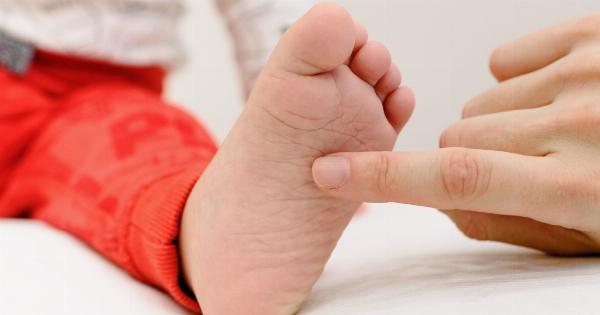Have you ever experienced the unsettling sensation of numbness in your fingers or toes? It can be quite alarming when this happens, as it can affect your everyday activities and indicate an underlying health issue.
In this article, we will explore the possible reasons why your fingers or toes may feel numb and provide insights into potential causes and treatments.
1. Peripheral Neuropathy
One of the most common causes of numbness in the fingers or toes is peripheral neuropathy. This condition occurs when there is damage to the peripheral nerves, usually as a result of diabetes, vitamin deficiencies, infections, or exposure to toxins.
The numbness is often accompanied by tingling or burning sensations.
2. Carpal Tunnel Syndrome
Carpal tunnel syndrome is a condition that affects the hand and fingers, causing numbness, tingling, and weakness. It occurs when the median nerve, which runs through the wrist, becomes compressed or irritated.
Repetitive hand motions, arthritis, and certain medical conditions can contribute to the development of carpal tunnel syndrome.
3. Peripheral Artery Disease
Peripheral artery disease (PAD) is a condition that affects blood flow to the extremities, particularly the legs and feet. When the arteries become narrowed or blocked by fatty deposits, it can lead to numbness, tingling, and pain.
People with PAD may also experience cramping and cold sensations in their toes.
4. Raynaud’s Disease
Raynaud’s disease is a condition in which the blood vessels in the fingers and toes narrow and restrict blood flow in response to cold or emotional stress. This can cause numbness, color changes in the skin, and a cold feeling.
Raynaud’s disease is more common in women and may be triggered by exposure to cold temperatures or certain medications.
5. Pinched Nerve
A pinched nerve can occur in various areas of the body, including the neck, back, or wrists, and can cause numbness or tingling in the fingers or toes.
This condition often arises due to compression or pressure on a nerve, which can be a result of poor posture, injury, or underlying conditions like herniated discs.
6. Frostbite
Exposure to extreme cold temperatures can lead to frostbite, which is the freezing of tissues. Frostbite affects the fingers, toes, ears, and nose most commonly. Along with numbness, it causes discoloration, pain, and blistering.
Severe cases of frostbite can result in tissue death and require medical intervention.
7. Multiple Sclerosis
Multiple sclerosis (MS) is a chronic autoimmune disease that affects the central nervous system. It can cause a variety of symptoms, including numbness or tingling in the extremities.
MS occurs when the immune system mistakenly attacks the protective covering of nerve fibers, leading to disruption in nerve signals.
8. Nerve Damage
Nerve damage, also known as neuropathy, can occur due to various factors such as diabetes, alcoholism, infections, or injury. This can lead to numbness, weakness, and tingling in the fingers or toes.
Proper diagnosis and treatment of the underlying cause are crucial for managing and preventing further nerve damage.
9. Certain Medications
Some medications, such as certain chemotherapy drugs or those used to treat HIV, can cause peripheral neuropathy as a side effect. These medications can damage the nerves and result in numbness or tingling in the fingers or toes.
If you suspect that your medication is causing your symptoms, consult your healthcare provider.
10. Other Possible Causes
There are several other potential causes of numbness in the fingers or toes, including Lyme disease, hypothyroidism, herniated discs, spinal cord injuries, and certain vitamin deficiencies.
It is important to consult with a healthcare professional to determine the exact cause and appropriate treatment for your condition.
In conclusion, numbness in the fingers or toes can be caused by various underlying factors.
Peripheral neuropathy, carpal tunnel syndrome, peripheral artery disease, Raynaud’s disease, pinched nerves, frostbite, multiple sclerosis, nerve damage, certain medications, and several other conditions can all contribute to this sensation. Identifying the specific cause is essential for effective treatment and management. If you experience persistent or worsening numbness in your fingers or toes, it is recommended to seek medical advice for a proper diagnosis and appropriate treatment.





























